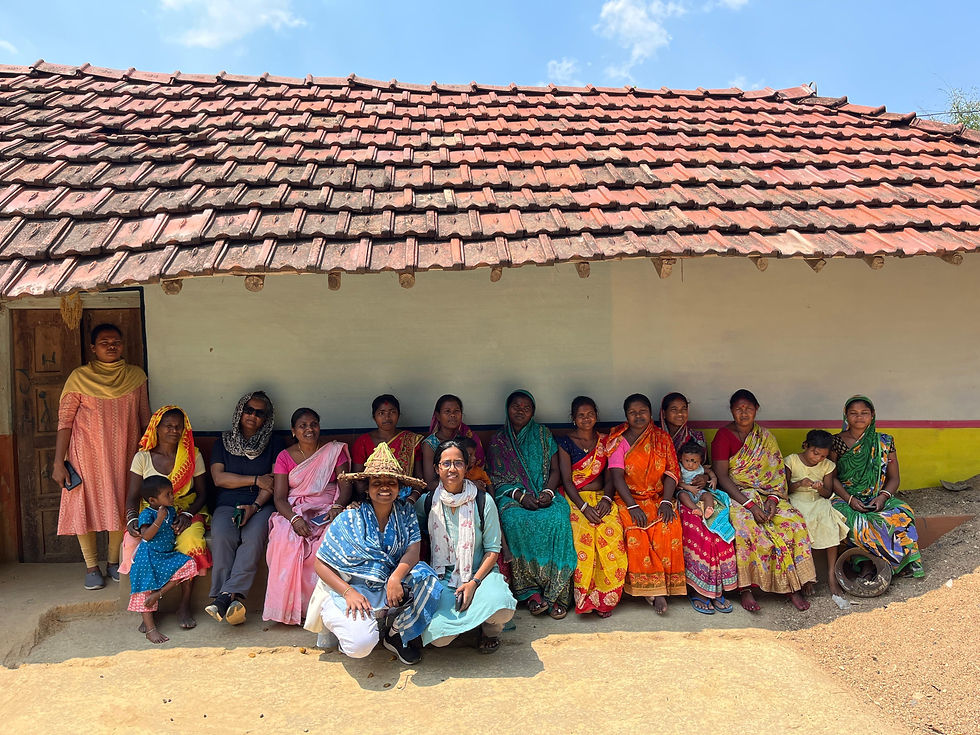An Interview With Mr Kumar Debbarma, A Medal-Winning Tripuri World War II Veteran
- Khumtia Debbarma
- Oct 20, 2020
- 3 min read
Translated from Kokborok by Manisha Debbarma
For most of the living population today, World War II is an event relegated to the pages of history. It is therefore a proud moment for anyone to meet a man who has participated and lived the war as a young man. Mr Kumar Debbarma, a World War II medalist from Tripura, is one of its last living soldiers. At the ripe age of 122 years, he lives in Kanchanmala village surrounded by his family.
Contrary to what one might expect, Mr Debbarma is quite healthy and active for his age although he says that there are times when he has trouble recalling some details of his adventure-filled youth. He is a well-known figure in the state and is revered by many visitors. I visited him to take us down the memory lane of what it was like to be part of World War II.

Kumar Debbarma, 122, is a World War II veteran from Tripura
Q: What do you remember about going to war?
Mr Kumar Debbarma: I joined the Tripura Rifle wing of the Army in the year 1936. In those days, Bikram Kishore Manikya Debbarma was the Maharaja of Tripura. He was the leader who sent us to the war.
Q: How many people went to war with you?
Mr Debbarma: The number of indigenous soldiers sent to the war was around 1 lakh. They all came from different tribes.
Q: Tell us about the places you went to during the war.
Mr Debbarma: First, we went to Burma. From there, we kept on fighting the war until we reached Japan, where we had a war with the Japanese soldiers. Japan lost many battles, but the war kept continuing until they finally surrendered.

One of his medals won for his participation in World War II
Q: What was the reason for World War II?
Mr Debbarma: They were trying to snatch our land, and they had taken a big chunk of land. For that reason, we had to go to war.
Q: How did you prepare for World War II?
Mr Debbarma: During the year 1936, after I got selected in Tripura Rifle, we were given rigorous training. This training continued without any rest for four years. I was a brave young man, and I was not scared of anything.

He was also awarded with The Burma Star for his role in the war
Q: Tell us about the medals you have won.
Mr Debbarma: After winning the war, we were awarded medals. I don’t see very well anymore so I cannot tell you what year we received them, but you can check them yourself. The year is written on the medal.

He received this medal from Kolkata
Q: What happened after the World War?
Mr Debbarma: After winning World War II (1939-1945), I returned to Tripura in 1948. There was nothing much to do after the war ended. I got married and soon began to turn to religion for spiritual happiness. My family was always religious, and so I carried forward the tradition. I established a temple in my house, and soon, people started coming here to offer prayers.
After spending some time talking to Mr Kumar Debbarma, I came to know that he is known by many people of Tripura state. We are honored and proud to have him in our midst. May he always be remembered among Tripuri people.
This article is created as a part of the Adivasi Awaaz project, with the support of Misereor and Prayog Samaj Sevi Sanstha.
This article was first published in Youth Ki Awaaz




Comments